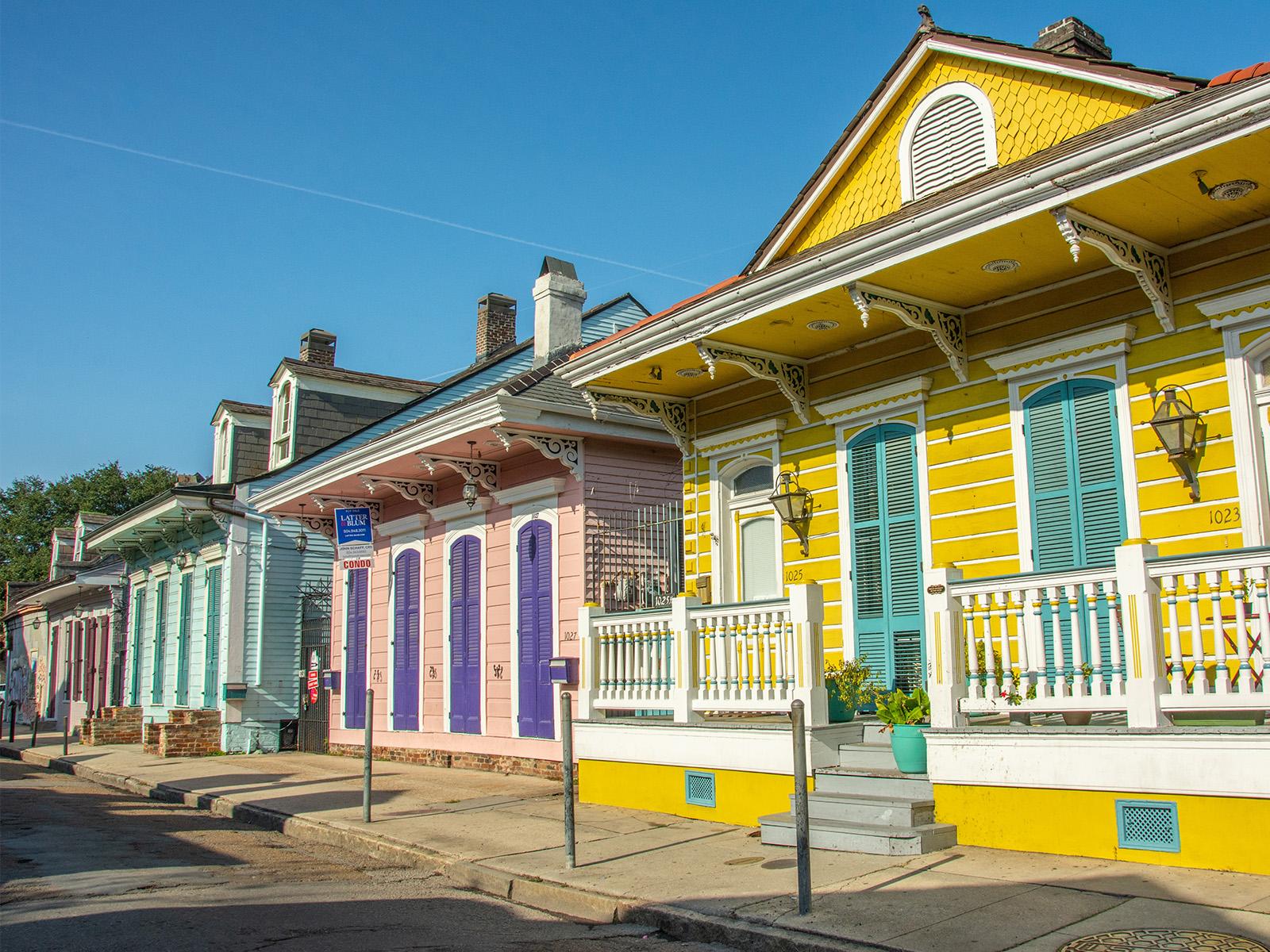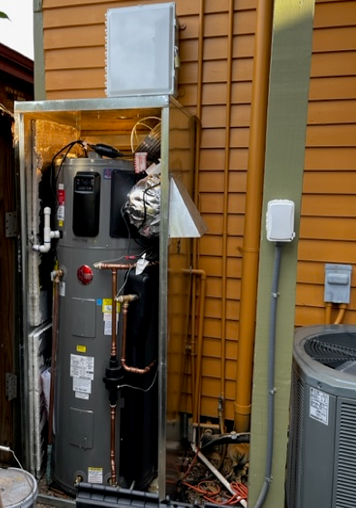Water Heaters Put in a Plug for Decarbonization
New Orleans study evaluates installation and use of 120-volt heat pump water heaters

New Orleans was selected as the site for a study on heat pump water heaters partly because of the city's mix of new and historic homes, each providing distinctive insights into possible installation challenges.
(Photo by Nina Alizada | Shutterstock)
Researchers at Pacific Northwest National Laboratory are learning if hot-water-loving homeowners will warm to an emerging innovation that could reduce costs, energy use, and carbon emissions.
As part of a field study launched in spring 2022, the researchers are coordinating the installation of heat pump water heaters (HPWHs) in homes in the New Orleans metropolitan area. The water heaters are unique in that they not only contain heat pump technology but, at 120 volts, are designed to plug into standard electrical outlets versus dedicated 240-volt, 30-amp circuits.
“The idea is that these plug-in water heaters can more easily replace millions of existing natural gas water heaters in the nation’s homes, which would significantly reduce a source of carbon,” said PNNL’s Josh Butzbaugh, who leads the New Orleans project. “The 120-volt units avoid costly electrical panel replacements and re-wiring that might be necessary to install a traditional 240-volt electric water heater,” he added.
The study is designed to identify best practices for siting, sizing, and installing the HPWHs, and to collect and analyze operational data from the units to demonstrate performance. Such information not only could help advance the adoption of the water heaters, but also inform future electrification policies for residential water heating.
The Big Easy launch
The Department of Energy’s Building Technologies Office allocated funding for the two-year study. New Orleans was selected as the study site partly because the region’s warm climate is optimal for HPWHs. New Orleans also provided a unique setting, because the city offers a mix of new and historic homes, each providing distinctive insights into possible installation challenges.
“If we can install a heat pump water heater in New Orleans, we can install one anywhere,” said PNNL’s Tyler Pilet, a New Orleans native and research engineer working in the field on the project. “New Orleans has a lot of variety in homes, with many being built before indoor plumbing, much less water heating, was expected in a home. This study has allowed us to install these water heaters in both conventional and unconventional locations, and to develop guidance for any installation.”
The team expected that participant recruitment, for a variety of reasons, might prove challenging—and it was. Approximately 8,000 informational postcards were sent out to single-family homes. About 80 homeowners initially signaled interest in the project, which offered free HPWHs to replace existing natural gas units.
Some homeowners, for various reasons, later decided against proceeding, and certain homes required too much reconfiguration to accommodate the new water heaters. The first group of participants was narrowed to nine homes offering a diverse range of sizes and water heater locations.
“For some of the homeowners, the idea of the study was particularly exciting. They wanted to participate because they believe in electrification and contributing to a cleaner environment,” noted Butzbaugh, an engineer in PNNL’s Electricity Infrastructure and Buildings Division.

Butzbaugh said the HPWHs were installed at the nine homes between October 2022 and February 2023. PNNL had identified a licensed plumber to undergo training and serve as the installer. Throughout the project, researchers have maintained regular communication with the water heater manufacturer to exchange lessons learned and other information.
Impressions from the field
The research team has observed that installation of the new units may require more time than originally estimated in some homes, but the cost would still likely be less than a panel replacement and re-wiring for a traditional electric water heater.
“In terms of homeowner feedback, the new water heaters generally are performing well and meeting needs for hot water. We have received few complaints,” Butzbaugh said.
The research team expects to add 10 participant homes, some of which bring unique installation challenges, to the study this year and continue the collection and analysis of data from all water heaters.
In addition to Butzbaugh and Pilet, the PNNL research team includes Tabitha Artuso and Travis Ashley.
Published: October 9, 2023